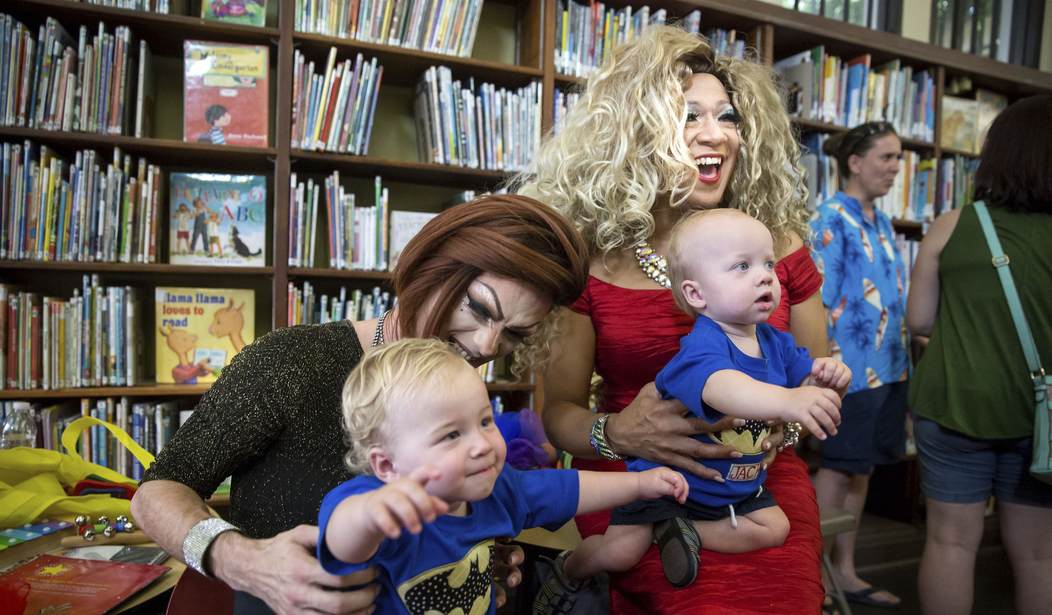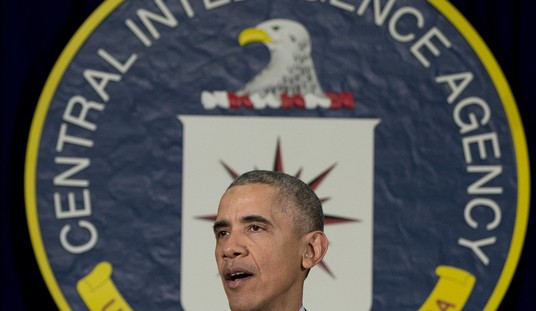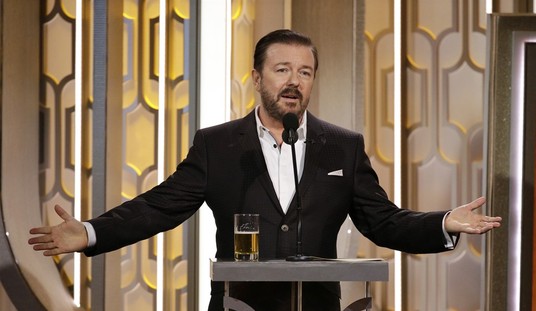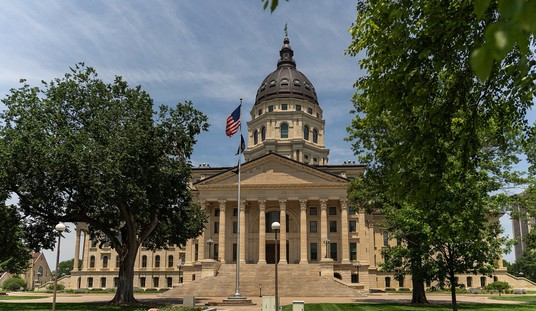Drag Queen Story Hour (DQSH) has been a source of controversy ever since news reports began surfacing about kids attending events in libraries and schools featuring drag queens reading stories. The issue became even more intense over the past two years as this movement took it a step further and began holding drag shows tailored to children.
Drag Queen Story Hour has morphed from reading stories to children to holding events featuring sexually-charged performances with scantily-clad men dressed as women. While proponents of these shows contend that they are altered in a way to make them “family friendly,” footage showing that this isn’t entirely true has gone viral on social media.
Social media personality Mike Harlow posted a tweet on Sunday referencing this debate. He suggested that the push to expose children to drag queens is part of a more sinister agenda. He wrote:
It is a misnomer that sexualization is the crux of the issue with Drag Queen Story Hour.
Sometimes it is. But these events are not always sexual. Doesn’t matter! The drag is incidental. It is simply a delivery system for an ideology. A more accurate name would be Baby’s Intro to Queer Theory.
This is an entry point to capture children into a cult. It is normalizing what has always been a fringe subculture. And that used to be the *appeal* of drag! It is ideological grooming. This is the equivalent of Scientologists going into schools to teach children about theitans and e-meters. There is a very clear agenda behind it.
It is a misnomer that sexualization is the crux of the issue with Drag Queen Story Hour.
Sometimes it is. But these events are not always sexual. Doesn’t matter! The drag is incidental. It is simply a delivery system for an ideology. A more accurate name would be Baby’s Intro to… https://t.co/nLuSLEYdA0
— Mike Harlow (@NotMikeHarlow) March 19, 2023
In his post, he asked a question that got me thinking: “Why are they so adamant about this? Why do they so badly want drag queens in front of your children?”
Harlow concluded: “If destabilization is the ends — this is the means.”
It is a question I have been pondering ever since this trend blew up. It is one thing to promote drag shows. But why are these people so adamant about making sure children are exposed to drag queens?
If one so much as suggests that these shows and events might be inappropriate for young kids, progressives fly off the handle, railing against questioners as bigots. They pretend the backlash against these events is rooted in enmity toward members of the LGBTQ community. It is always a fiercely visceral reaction.
Perhaps their anger is fueled by what they perceive as threats to their ultimate agenda, which, as Harlow suggested, is introducing children to one of progressivism’s most prominent ideas: Queer theory.
To some, this might sound like some made-up conspiracy theory being peddled by right-wingers who see secret agendas everywhere. But it is difficult to make this claim when these folks actually say the quiet part out loud.
A report titled, “Drag pedagogy: The playful practice of queer imagination in early childhood,” which was published in Curriculum Inquiry in 2020, precisely lays out the impetus behind the DGSH movement. In the article, the authors make the case for subjecting children to performances featuring drag queens, and it is exactly what Harlow suggested in his tweet.
“Through [Drag Queen Story Hour], drag artists have channelled their penchant for playfully “‘reading’ each other to filth” into different forms of literacy, promoting storytelling as integral to queer and trans communities, as well as positioning queer and trans cultural forms as valuable components of early childhood education,” the authors explained. “We are guided by the following question: what might Drag Queen Story Hour offer educators as a way of bringing queer ways of knowing and being into the education of young children?”
This is where Queer Theory comes into play. Queer Theory “subverts traditional institutions of society that are based on the heteronormative model of human sexuality, and acknowledges the broad spectrum of sexuality, sexual orientation, and gender identity,” according to StudioBinder.
The Pink News explains the term “queer” in this way:
Queer is not as specific as gay, for instance.
It doesn’t reveal your gender, or the gender of your partner, whereas lesbian, for example, usually implies that you’re a woman attracted to other women.
Similarly, if people are attracted to people across the gender spectrum, they may not want to identify as bisexual, because the term implies a person is attracted to just two genders.
Other terms are available for people who feel this way, like pansexual, but queer has become a useful umbrella term for some sexual and gender minorities who do not fit into the traditional categories around gender identity and sexual orientation.
So, queer essentially means ‘a person who is not straight’, while gay means ‘a person who is attracted to the same sex’.
In the article, the authors note that the term “refers to our desire to practice an embodied political resistance to confining constructs of gender and sexuality as they are produced by the institutions and social relations that govern our lives.”
In essence, those identifying as “queer” reject traditional perceptions of sex and gender and seek to reimagine how society looks at sexuality and gender.
The authors of the report make the case for using drag queens to introduce Queer Theory to children by writing:
Many elements of DQSH are common to early childhood schooling: bright colours, music, art, and imaginative play. There is an adult teacher leading a classroom of young students. What is different, though, is that the teacher is a drag queen. She breaks the limiting stereotype of a teacher: she is loud, extravagant, and playful. She encourages children to think for themselves and even to break the rules. She is the exponential product of Ms. Frizzle and Bob the Drag Queen. She is a queer teacher.
Michelle Tea, co-founder of Drag Queen Story Hour, explained that “for drag queens the idea is about pushing limits and pushing boundaries.”
This prompts the authors to ask: “What if we took play, defiance, and imagination seriously as forms of knowledge production? If we celebrated the convergence of children and drag queens, what kinds of potentialities might their collaboration hold?”
The authors suggested that DQSH offers a “drag pedagogy” which is designed for “teaching and learning that extends beyond traditional approaches to LGBT curricular inclusion.” The article continues:
“The themes within drag pedagogy, applicable beyond the context of drag itself, move away from vocabulary lessons and the token inclusion of LGBT heroes to begin to engage deeper understandings of queer cultures and envision new modes of being together. We emphasize that drag pedagogy resists didactic instruction and is not prescriptive. Instead, it artfully invites children into building communities that are more hospitable to queer knowledge and experience.”
What the authors hope to achieve by using drag queens to influence children is to promote greater “inclusion” of LGBT people in the classroom and society. “As a practical example in the early childhood classroom, consider the common practice of sorting children into groups of boys and girls,” they wrote. “An inclusion stance might allow children to decide for themselves whether they would like to be in a boy’s or a girl’s group, whereas a transformative approach might work with children to inquire as to how ‘boy-ness’ and ‘girl-ness’ are given meaning, the limits of these two categories, and how people might organize themselves differently.”
There you have it.
Progressives willingly admit that the objective of Drag Queen Story Hour and drag shows for kids is to influence young minds to accept progressive ideology related to sexuality and gender identity. It is yet another form of indoctrination that the far-left is using to ensure that their ideas become dominant in American society.
It is worth noting that the use of drag queens to this end is not the only tactic progressives are using to influence children. Indeed, it is one of many that are being employed in schools and elsewhere. These are not innocent performances and events simply designed to entertain. This is a wholesale effort to inject more leftist ideology into the culture by getting to people before they become adults. In light of this, the backlash against this movement seems warranted.
RedState’s Kira Davis recently addressed this on her podcast “Just Listen to Yourself.” You can listen at the link below:
The opinions expressed by contributors are their own and do not necessarily represent the views of RedState.com.














